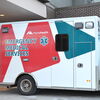Processing Your Payment
Please do not leave this page until complete. This can take a few moments.
- News
-
Editions
-
- Lists
-
Viewpoints
-
Our Events
-
Event Info
- Business Leaders of the Year Reception 2025
- Women's Leadership Forum 2025
- On the Road with Mainebiz in Bethel
- Health Care Forum 2025
- On The Road with Mainebiz in Greenville
- On The Road with Mainebiz in Waterville
- Small Business Forum 2025
- Outstanding Women in Business Reception 2025
- On The Road with Mainebiz in Bath
- 60 Ideas in 60 Minutes Portland 2025
- 40 Under 40 Awards Reception 2025
- On The Road with Mainebiz in Lewiston / Auburn
- 60 Ideas in 60 Minutes Bangor 2025
Award Honorees
- 2025 Business Leaders of the Year
- 2024 Women to Watch Honorees
- 2024 Business Leaders of the Year
- 2023 NextUp: 40 Under 40 Honorees
- 2023 Women to Watch Honorees
- 2023 Business Leaders of the Year
- 2022 NextUp: 40 Under 40 Honorees
- 2022 Women to Watch Honorees
- 2022 Business Leaders of the Year
-
-
Calendar
-
Biz Marketplace
- News
- Editions
- Lists
- Viewpoints
-
Our Events
Event Info
- View all Events
- Business Leaders of the Year Reception 2025
- Women's Leadership Forum 2025
- On the Road with Mainebiz in Bethel
- Health Care Forum 2025
- On The Road with Mainebiz in Greenville
- + More
- On The Road with Mainebiz in Waterville
- Small Business Forum 2025
- Outstanding Women in Business Reception 2025
- On The Road with Mainebiz in Bath
- 60 Ideas in 60 Minutes Portland 2025
- 40 Under 40 Awards Reception 2025
- On The Road with Mainebiz in Lewiston / Auburn
- 60 Ideas in 60 Minutes Bangor 2025
- - Less
Award Honorees
- 2025 Business Leaders of the Year
- 2024 Women to Watch Honorees
- 2024 Business Leaders of the Year
- 2023 NextUp: 40 Under 40 Honorees
- 2023 Women to Watch Honorees
- 2023 Business Leaders of the Year
- + More
- 2022 NextUp: 40 Under 40 Honorees
- 2022 Women to Watch Honorees
- 2022 Business Leaders of the Year
- Nomination Forms
- Calendar
- Biz Marketplace
PUC defers decision on net metering
 Photo / Peter Van Allen
Maine Beer Co. has installed a photo-voltaic solar power system at its brewery in Freeport.
Photo / Peter Van Allen
Maine Beer Co. has installed a photo-voltaic solar power system at its brewery in Freeport.
The Maine Public Utilities Commission announced Monday that it needs more time to decide its proposed rule that would gradually change financial incentives designed to encourage consumers to install solar panels on their homes or small businesses.
The three-member commission, all appointees of Gov. Paul LePage, deferred their decision on net energy billing (also called “net metering”) until the first part of 2017. Until a final rule is issued, the existing rules for net energy billing customers remain in place
"This is an important rule and more time is needed to consider the proposed rule in light of the comments we received to ensure that the rule treats all ratepayers in a fair manner," said Commission Chairman Mark Vannoy. "It remains clear that changes in technology and costs of small renewable generation, particularly solar photo-voltaic, require a careful review of the current rule and potential modifications.”
Proposed rule sparks debate
The PUC’s proposed rule would grandfather for 15 years net metering credits for existing solar owners. As new customers sign up over the next 10 years, the PUC also stated in its proposed rule, "netting of the transmission and distribution portion of the bill will be gradually reduced" while "netting regarding the supply portion of the customer's bill will remain unchanged."
The proposal also calls for a 50% increase in the size cap for eligible solar-powered facilities — from 660 kilowatts to 1,000 kilowatts — and explicitly allows net energy billing for community solar projects.
A public hearing on the proposed rule was held on Oct. 17 and the PUC received several hundred written comments as well.
Solar advocates, including ReVision Energy, the state’s largest Maine-based solar company have argued that the proposed 15-year “grandfather” period for existing solar panel owners is too short and would make Maine “the most unfriendly solar state in the nation at this point,” as ReVision’s co-founder Fortunate Mueller stated in his testimony.
But Central Maine Power, which asked the PUC to review the state’s net metering policies earlier this year, said net metering has accomplished its intended purpose of jump-starting solar power. The utility, in written testimony submitted by its attorney Richard P. Hevey, has urged the PUC to find an alternative to net energy billing “that fairly compensates [distributed energy generators] for their deliveries to the network but also equitably allocates the costs of the transmission and distribution grid to all customers, including customers who chose to install self-generation systems."
“The comments and participation of stakeholders to date have been helpful,” Vannoy said, adding that with such diverse perspectives the rulemaking process “takes time.”
The newly elected 128th Legislature will consider changes in the state’s solar power policies as well, Vannoy added, stating, “Should the Legislature change the applicable law, the commission will act accordingly."
Read more









Comments